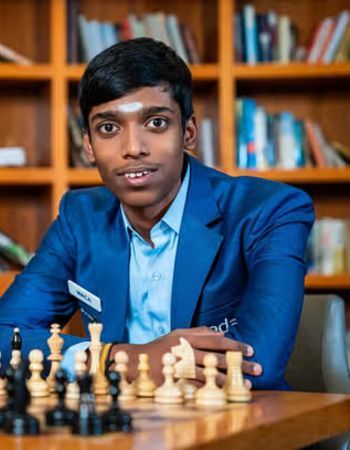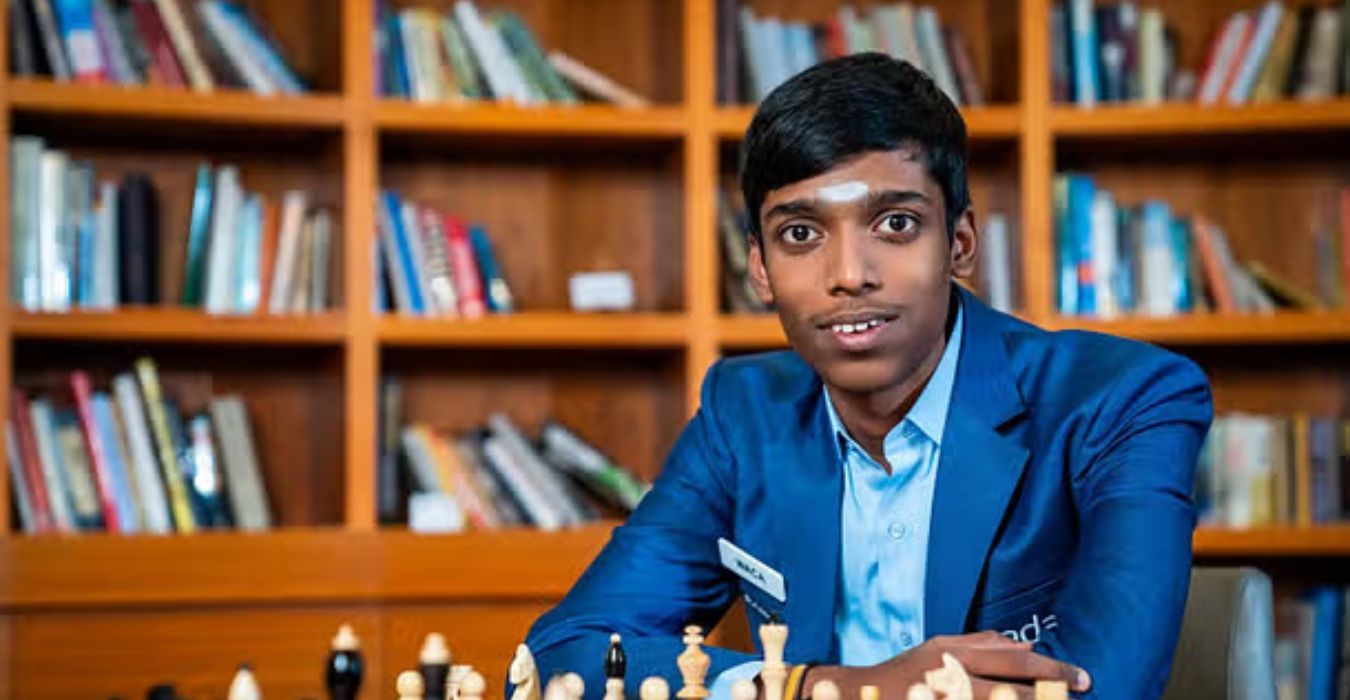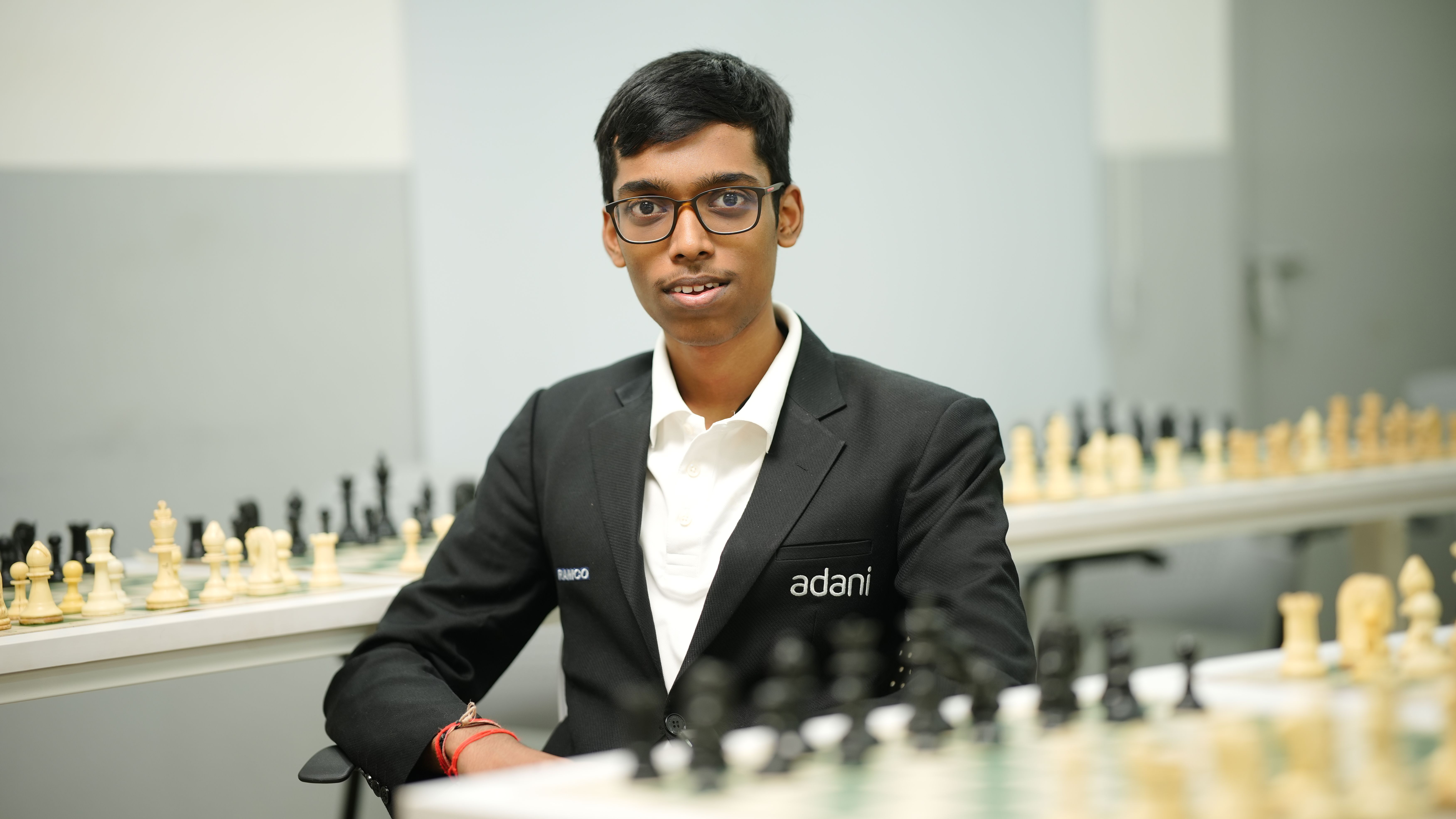You must study your adversary if you hope to conquer them, but if your adversary is an unassuming, introverted 19-year-old Grandmaster from India, the first step may be the trickiest: articulate his name the way it should be. Rameshbabu Praggnanandhaa. There's a five-minute tutorial on YouTube about the correct pronunciation of his name. Yet, only a few get it right, without any stutters. His fellow competitors and commentators call him 'Pragg' because it's short and easy to pronounce. While this rechristening saved his opponents from the ordeals of mazing through the intricate web of syllables of Praggnanandhaa, they soon realised that mastering his name is nowhere as daunting as outsmarting him on the chessboard.
Praggnanandhaa is currently the top-ranked Indian in the FIDE classical rating, ahead of his compatriots Arjun Erigaisi and D Gukesh. This marks the first time in history that India has three players in the top six of the FIDE rankings, highlighting the strength of the Indian chess scene. “We just aim to play our best in each tournament. I connect well with Arjun, and our friendship goes beyond chess. We stay in touch even outside tournaments, always analysing the games and motivating each other,” he says. Overall, only Magnus Carlsen, Hikaru Nakamura, and Fabiano Caruana rank above him, and they are all in their thirties. Yet he is quick to dismiss the scale of his accomplishments, for his eyes are already set on bigger things. “There is a difference of just three points between me and both Arjun and Gukesh. I am now training for my next classical tournaments, the Grand Swiss and the World Cup,” says Praggnanandhaa, in an exclusive conversation with this publication.
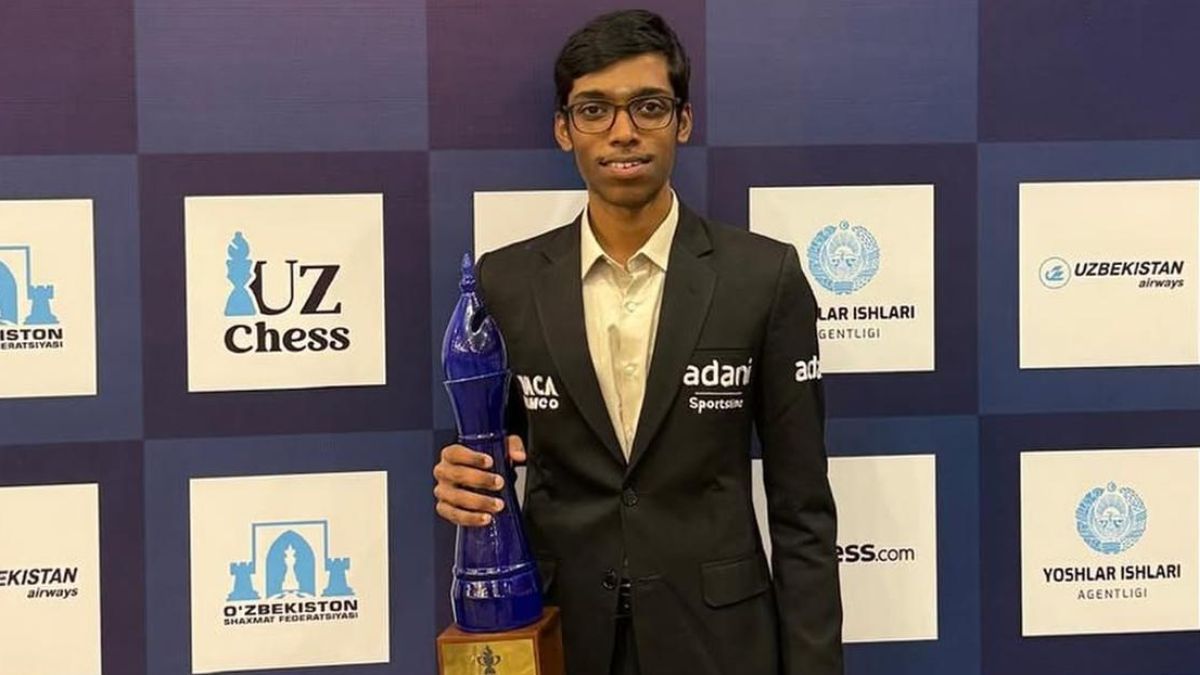
Born and raised in Chennai to Rameshbabu, a bank manager, and Nagalakshmi, a homemaker, Praggnanandhaa started playing chess at the young age of two, inspired by his elder sister Vaishali's passion for the game. It did not take too long for him to start outclassing his sister. They had a fair share of fights, yet the warmth of their sibling bond endured against their competitive fervour. Once Praggnanandhaa became a Grandmaster, he started helping out his sister in her quest to attain the same honour. In 2023, Praggnanandhaa and Vaishali became the first-ever brother-sister duo to become Grandmasters. “There’s no rivalry between us anymore. She is very supportive, and we discuss chess and share ideas, which helps us both improve. We focus on growing as players and supporting each other during tournaments,” he says.
This year, he has already claimed three prestigious titles: the Tata Steel Chess Masters in Netherlands, the Superbet Chess Classic in Romania, and, most recently, the UzChess Cup in Uzbekistan. He won all these classical tournaments through tiebreaks. These results carried extra significance for the chess prodigy, after what was a rather disappointing last year, marked by a string of near misses, which left him weary and battered. Reflecting on his turnaround this year, he says, “I didn't have much time to analyse my games due to a packed schedule. Towards the end of the year, I sat down with my coach, and we reviewed my games to identify what was going wrong. We worked on fixing those issues, which helped me start this year with renewed motivation.”
At Wijk aan Zee, he won his first-ever super-tournament, despite losing his final-round classical game against Vincent Keymer that lasted for over six hours. In the tie-breaker, he capitalised on a rare mistake from Gukesh to become the first Indian after Viswanathan Anand to win the Tata Steel Masters. While classical has always been his strongest suit, he has started showing great potential in other formats as well. He ranks freestyle as his favourite format, because it allows him to be more creative. At the recently concluded Freestyle Chess Grand Slam in Las Vegas, he defeated Carlsen, who eventually won the tournament, twice in a row. t,” he says. Beating Carlsen remains the pinnacle of the sport, notwithstanding the format or the occasion, and no one has really pushed him like Praggnanandhaa in recent years. In 2022, he became the first player to beat Carlsen thrice in a row. At Norway Chess last year, he registered his first classical win over Carlsen. The secret to outmuscling one of the greatest-ever is to play the game, and not the man. “It's always exciting to face Carlsen, but I try to take it as just any other game. It's not very different from facing other top players. What has also helped is the presence of three Indians in the top six, which shows our strength, so opponents don't take as many risks against us,” he adds.
Unlike some of the veterans like Carlsen, Nakamura, or Viswanathan Anand, Praggnanandhaa, a rising star, cannot skip tournaments to ration his energy. Every tournament, every format carries a significant weight for him. And since the tournament schedule is never going to ease up, it becomes crucial for the chess prodigy to maintain his energy, and be attuned with the inner rhythm of his body. A series of poor results last year left him on the brink of burnout. It was an unprecedented, unfamiliar state for the teenager to be in, for he never envisioned himself being worn out by the thing he loves the most. “I'm now aware of the risk of burnout, so I am mentally prepared for the packed schedule and focus on staying resilient, regardless of results. It's about being ready for the grind,” adds Praggnanandhaa.
In a country where cricket overshadows everything else, it's rare for a young achiever from a marginal sport like chess to generate such fervour among the masses. Yet, Praggnanandhaa has achieved just that, his exceptional talent drawing in even those who remain indifferent to chess. At 12 years, 10 months and 13 days, Praggnanandhaa became the world's second youngest Grandmaster. While many young prodigies flicker out, he has consistently built upon his early successes, proving that he is here for the long run. When he became Grandmaster, he was more relieved than jubilant. “At the time, it felt like the most important thing, but once I achieved it, I shifted my focus to the next goal. It was a relief to reach that level, allowing me to work on improving my game further,” he quips.
Seven years have slipped by since he reached the pivotal milestone, and while he transitioned from a kid to a boy in this period, the essence of who he is remains remarkably unchanged. He is still a shy and reserved character, rarely showing too much emotion, and always choosing words with calculated precision. With early fame came the travails of it. He could not engage in carefree acts that other boys of his age enjoyed. But then he was never an ordinary boy. “It was hard for me to live under the public gaze, especially when I was trying to become the youngest Grandmaster. But I don't let it bother me now. I now try to block out everything that is being said about me, and just focus on playing my best,” adds Praggnanandhaa.
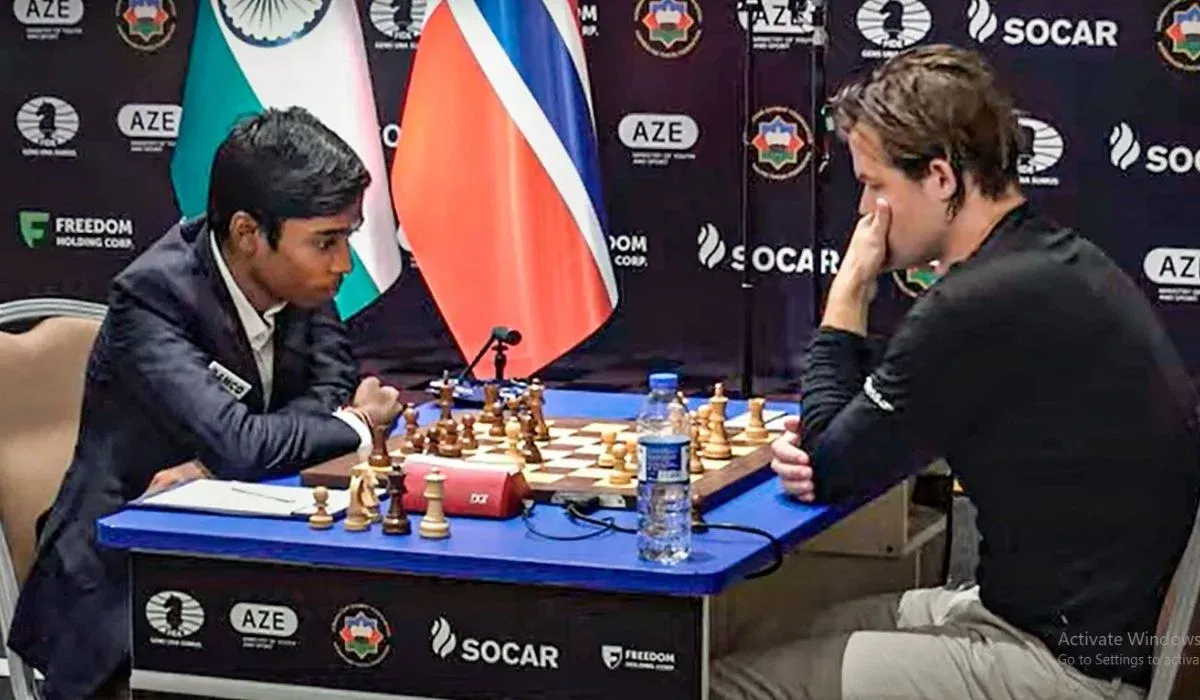
Even though chess may not be a physically intense game, competing at a high level requires a lot of effort in terms of travel and logistics. It was not possible for Praggnanandhaa, who began competing internationally very early, to manage everything and also play the match without any fatigue. This is where his mother played a crucial role in supporting his journey. She managed all the logistics so that he could focus purely on his game. She would also carry an electric cooker to prepare sambar rice for him on the tour. But as the schedule became more intense, it became hard for her to accompany him every time. “Having my mother with me was invaluable, especially during long tournaments. She kept me grounded during emotional moments. But she hasn't travelled with me as much recently due to my sister's tournament schedule,” says Praggnanandhaa, also crediting Adani Sportsline for “taking care of his expensive aspects like training and travel.”
In two months from now, he will be competing in the most significant tournament of the year: the Chess World Cup. Besides proving his excellence at the biggest stage, what also adds to his excitement is the fact that he will be competing in his own country. “I'm thrilled about the World Cup in India. It means less travel and access to good food. I haven't played much in India since the Chennai Olympiad, so I'm really looking forward to it, especially with the Candidates qualification at stake,” he concludes
